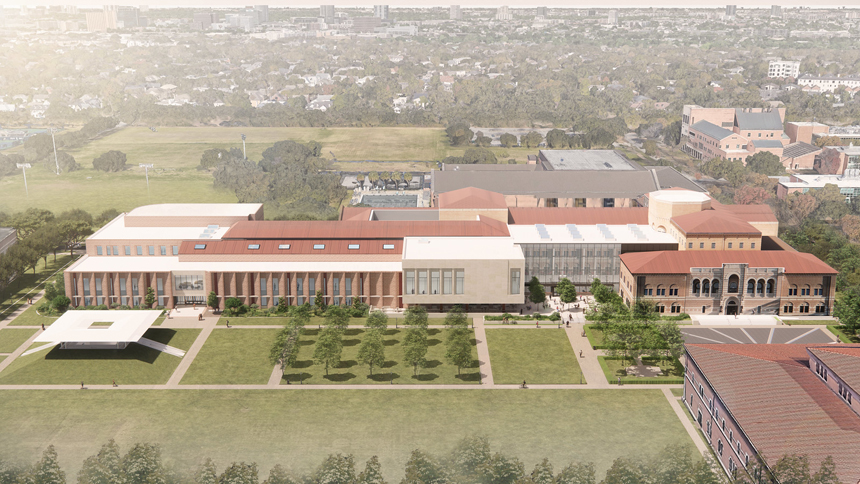
A prominent quantum computing firm has secured a $54.5 million contract with the U.S. Air Force Research Laboratory (AFRL), marking a significant step in the evolution of defense and quantum technologies. The partnership highlights the growing interest from defense sectors in quantum computing capabilities, signaling a broader commitment to integrating cutting-edge technologies into military applications. The deal involves advanced research and development aimed at harnessing quantum computing’s potential to enhance defense systems, making the U.S. military’s technological infrastructure more sophisticated.
The company behind the contract has gained substantial attention for its advancements in quantum technologies, standing out as a key player in a highly competitive market. This new partnership is expected to accelerate the firm’s growth and reputation within the quantum computing industry, with experts noting that such collaborations between tech firms and military bodies are likely to become more common as quantum technologies mature.
Quantum computing has long been regarded as a game-changer across various sectors, including finance, healthcare, and now defense. Its ability to solve complex problems at speeds unattainable by classical computers makes it an attractive option for institutions seeking to maintain a technological edge. With the U.S. military increasingly turning to emerging technologies to fortify its defense capabilities, this contract is viewed as a move to future-proof the nation’s security infrastructure.
Though details regarding the exact nature of the quantum computing applications being developed remain undisclosed, there is speculation that the technology could be applied to various areas, including cryptography, logistics, and artificial intelligence. These fields stand to benefit significantly from quantum computing’s ability to process vast amounts of data more efficiently than traditional systems. Military strategists and technologists have long been interested in quantum computing’s potential to revolutionize encryption, enabling more secure communications and data protection in the face of increasingly sophisticated cyber threats.
Quantum cryptography, in particular, has been highlighted as one of the most promising applications for defense. The technology’s ability to create virtually unbreakable encryption could provide a significant advantage in securing military communications and safeguarding sensitive information. With the rise of cyber warfare and the growing threat of espionage, there is a pressing need for more robust security measures, and quantum technologies could offer solutions that traditional systems cannot.
In addition to cryptography, the quantum computing firm’s contract with the AFRL is expected to explore applications related to optimization and artificial intelligence. These technologies are becoming crucial in modern warfare, where the ability to rapidly process data and optimize logistics can mean the difference between success and failure in complex military operations. The U.S. Air Force, in particular, has expressed interest in quantum algorithms that can optimize supply chains, resource allocation, and mission planning, potentially offering greater efficiency in both peacetime and conflict scenarios.
Artificial intelligence, when paired with quantum computing, has the potential to enhance autonomous systems and decision-making processes, which are increasingly becoming integral to modern defense strategies. Whether in unmanned drones, reconnaissance missions, or data analysis, the combination of AI and quantum computing could offer military personnel unprecedented insights and operational advantages. However, experts caution that the development of these technologies is still in its early stages, and practical applications in defense may take years to fully materialize.
This collaboration with the AFRL reflects broader trends in defense spending and technological innovation. Governments worldwide are investing heavily in quantum research, recognizing the strategic advantages these technologies could bring. For the U.S. Air Force, maintaining a lead in quantum computing is seen as crucial to ensuring national security in an era where technological superiority increasingly defines military power. The contract is also indicative of a shift towards public-private partnerships in technological development, as the complexity and cost of cutting-edge research often require collaboration between government agencies and private companies.
As quantum computing continues to advance, there are concerns over the ethical implications of its use in military contexts. Some experts argue that quantum technologies could disrupt global power dynamics, especially if they are used to develop new forms of weaponry or surveillance systems. Others believe that quantum computing’s potential to enhance defensive capabilities, such as cybersecurity and logistics, could outweigh any negative consequences, providing a net benefit to global security. Nonetheless, these debates are likely to intensify as the technology becomes more widespread.
The quantum computing industry itself has experienced rapid growth in recent years, with numerous companies competing to develop commercially viable systems. While still in its infancy, the sector has already attracted billions of dollars in investment, as well as interest from governments and multinational corporations. This latest contract with the AFRL is expected to further fuel that growth, placing the quantum computing firm at the forefront of a technological revolution.
Quantum computing’s potential extends beyond defense applications, with industries such as pharmaceuticals, energy, and finance also exploring its capabilities. In pharmaceuticals, for instance, quantum computers could be used to model complex molecules and accelerate drug discovery processes, potentially revolutionizing the development of new treatments. Similarly, in finance, quantum computing could improve risk analysis and portfolio optimization, offering financial institutions new tools to navigate increasingly complex markets.




